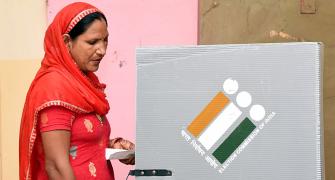Patent applications in China have soared, almost doubling between 2000 and 2004, according to a report by the World Intellectual Property Organization. That's sure to provide fodder for those who predict that China will overtake the U.S. as the world's most innovative economy. But the U.S. isn't giving up the fight just yet.
WIPO, a United Nations agency, has been collecting data on patent applications for years, but this is the first time it has issued a formal report and a trend analysis. Complete data are only available through 2004.
In 2000, China passed Germany to become the fifth-largest country for patent filings, partly because many German inventors are now sending their applications straight to the European Patent Office.
- Slideshow: Countries With The Most Patent Applications
- Slideshow: The World's Most Competitive Countries
Now, however, China has passed the European Patent Office as well and moved into the fourth spot. (Due to a data error, the report originally stated that China was still in fifth place.) With over 130,000 patent applications in 2004, it has almost caught up to the Republic of Korea. But it's still far behind the top two: Japan and the United States. India is lagging in 11th place, with 17,466 patent applications in 2004 -- fewer than Brazil, but more than France.
But China isn't producing all those patent applications within its borders, and neither is India. In both countries, 63% of all patents were granted to non-residents, compared with only 49% in the U.S., 9% in Japan and 22% in Germany.
That means inventors from other countries are now patenting their products in China and India, because they see them as huge potential markets and don't want to lose out to local products. "It is a reflection of people's interest in investing in the country," says Francis Gurry, Deputy Director General of WIPO.
China is far from overtaking Japan as the world's most patent-hungry country. In 1985, more than twice as many patent applications were filed in Japan as in the United States. In fact, residents of Japan own more than 1.5 million patents, compared with about 1.2 million owned by Americans.
But the gap in patent filings has narrowed in recent years. This year, about 356,000 patents were filed in the U.S., compared with 423,000 in Japan, a gap of less than 20%.
If patent applications are a signal of a country's innovative capacity, Japan and the Republic of Korea should win the top awards. Japanese citizens are still the most likely to file for patent applications, with 2,884 residents per million filing in 2004. The Republic of Korea was close behind, with 2,189 filings per million people.
Every other country was left in the dust. In the U.S., a distant third, only 645 people out of every million filed patent applications in 2004. China was even further back, with 51 applications per million people, behind Belarus, Ukraine, Hungary and Poland.
And India was second to last, with seven filings per million people.
Japan and Korea are leading in other ways as well. For every $1 billion of gross domestic product, citizens of the Republic of Korea file for 116 patents, and Japanese apply for 107. In third place but far behind, Germans file only 23, and Americans file 18.
But Gurry says Japan and Korea aren't necessarily more innovative than other countries -- they just have a "high patent culture." "They place a lot of emphasis on it," Gurry says. They also tend to apply for more patents for each invention. While an American might only patent the final product, a Japanese inventor might file for patents on many individual components.
Either way, Americans just have to accept that the patent system, like everything else, is going global. Not only are Chinese inventors using their own patent system in record numbers, but they can also access other patent offices as well.
Under the Patent Cooperation Treaty, which was established in 1978, innovators can file an international patent application with their home office, or with WIPO. More and more inventors are using the system to apply for patents in many countries at once.
That means more knowledge is available to more people. "The purpose of the patent system is to divulge technology, to get it out in the open, to add to humanity's store of knowledge," Gurry says.







